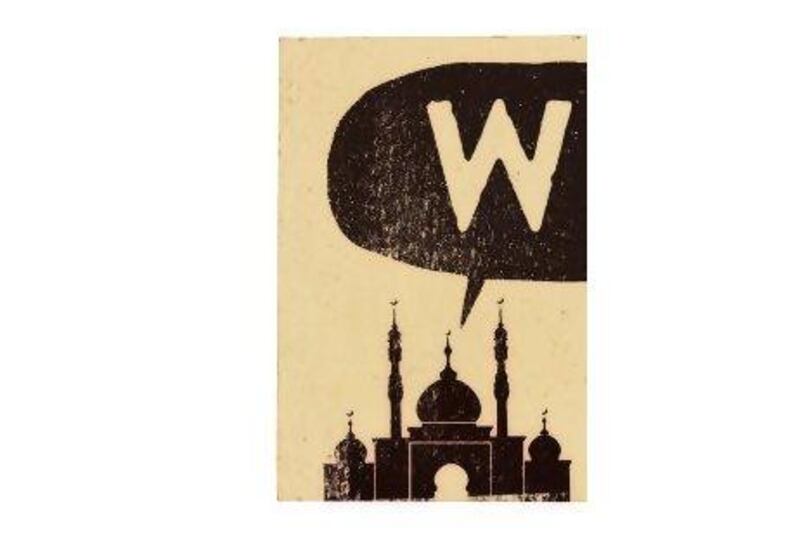The death of Arab secularism has been exaggerated. The mantra of secularism in the Arab countries is far more complex than a clear segregation between political and religious institutions, and the future of secularism in the region is more complicated than just the rise of Islamism.
Michel Aflaq, the founder of the Baath party in Syria, once affirmed that "the power of Islam has revived to appear in our days under a new form, that of Arab nationalism". At the time, this argument triggered the anger of Islamists, who wanted to establish a stronger and broader Islamic presence. Sayyed Qutb, one of the leading lights of the Muslim Brotherhood, believed, on the contrary, that Arab nationalism had "exhausted its role in universal history".
In societies where there is an ambiguous line between religion and culture, between the public and private spheres, and between individual and communal practices, the potential hold of secularism over individuals is, in the long term, at least questionable.
As Aflaq's comment demonstrates, Arab nationalism, as he understood it, was still about Islam but had within it the space for secularism.
This unending skirmish between movements in favour of Arab nationalism, like the Baath, and those with Islamist inclinations has increased questions about the authenticity of secularism in the Arab realm. This was particularly the case after countries such as Egypt, Syria and Iraq gained independence and used fierce practices to eliminate any dissident dogmas — religious or non-religious.
In the years after independence, the governments of some of the Arab republics, though nominally secular, had inserted Islam in different formulations into their rhetoric to reach a wider public.
But this was a hybrid ideology. Nominally secular, but really about security, these states had the veneer of Islam.
Islamists, meanwhile, had been developing their ideologies, strategies and objectives under the shadow of torture in the dungeons of the state.
That created a situation where, after the Arab Spring brought drastic change at the political, economic, security and social levels, these organised groups were poised to make important gains.
Indeed, today the general perception is that Islamist factions across the republics are finding a resurrection after years of relegation and exclusion from the public sphere.
While initially Islamist groups abstained or were reluctant to join the revolutions, they have subsequently struck a blow against secularists and liberals whose bravery and determination held the revolutions together.
Particularly in Egypt, what started as general euphoria against the toppling of a dictator has increasingly become alienation for non-Islamists, as the same groups that were once oppressed are flexing their muscles and trying to enforce political hegemony.
Yet the Islamists in Egypt are a good example of why secularism is far from finished. The appeal of Islamist politics is gradually diminishing as the wider public begins to understand their real intentions.
Although the Islamic factions won the parliamentarian and presidential elections in Egypt, the first ballot boxes counted are not always accurate indications of wider political views. They may simply be a reaction to what came before. Indeed, as the Brotherhood and the more fundamental Salafi groups state their views publicly, they become less popular.
The sudden profusion of religious television channels are unmasking their lack of political awareness or in-depth religious knowledge.
Arabs can see how these groups utilise absurd discourses and antagonistic tones; blaming and insulting minority groups, demeaning women and threatening seculars and liberals.
While they give themselves the legitimacy to accuse others of apostasy (the Takfiri doctrine), they overlook that they are creating rejection by Muslims and non-Muslims, and by believers and non-believers.
The French academic Olivier Roy, who has written widely about political Islam, says: "There is a cultural gap between the Islamists and the younger generation that is less about Islam per se than about what it means for a person to be a believer."
Professor Roy is right: there are young members of Islamist groups who have been voluntarily leaving these structured movements once they had the chance to see the organisations from within. Contradictions between their stated ideologies and pragmatic actions, internal corruption, and the subjugation of dissent, all have pushed young members to leave.
In the short term, Islamist movements have failed to respond to the objectives of the people. Their credibility has been questioned as they repeatedly alter their narratives and alliances; seeking political supremacy or demanding Sharia by force.
The real challenge for the Islamist parties is to deliver a comprehensive economic agenda with tangible results that bolster education, economic growth, and employment. The Islamist parties have forgotten that economic decline was a major factor in the build-up to the Arab Spring.
They have not understood that the appeal of their ideology will fade among their supporters if it is not coupled with socio-economic development. The tolerance of Arab publics for religious rhetoric without political action is thin.
None of this means that secularism will come back. Secular parties could make the same mistakes. Even now, both the terms "Ikhwan" and "secular" carry a certain social stigma in the Arab world. Although Arab nationalism movements after postwar independence looked to a resurgence of secularism, there was a parallel suppression of Islamic movements and their members. The temporary revival now is for the Islamic groups, but their demise may come soon, leaving the space to more structured secular and liberal coalitions who might learn from the past and try to adapt secularist ideals to particular national contexts.
The struggle between the Islamists and secularists will be perpetual and the evolution of secularism will gain momentum. It might not happen in the short term. Outside circumstances might change in their favour. However, to secure political influence, secular groups will need to develop their narratives, crystalise their ideas, and unite their leaderships.
Islamist parties are rapidly losing their credibility, much earlier than expected. The overreach of Islamist organisations will, sooner or later, have consequences and will create a new religious and political vacuum that will assist the secular parties. Public debate can shift. What once seemed impossible can suddenly seem very real.
The revival of secularism is a process. It is a hope - a hope that the sacrifices of the people who fought to jettison dictatorship have not been in vain. It is also a refutation, a refutation of the idea that the Arab realm, with its history and civilisation, creativity and intelligence, can have only an Islamist future.
Jasmine Roman is a pseudonym for a Syrian writer
On Twitter: @JasmineRoman01





